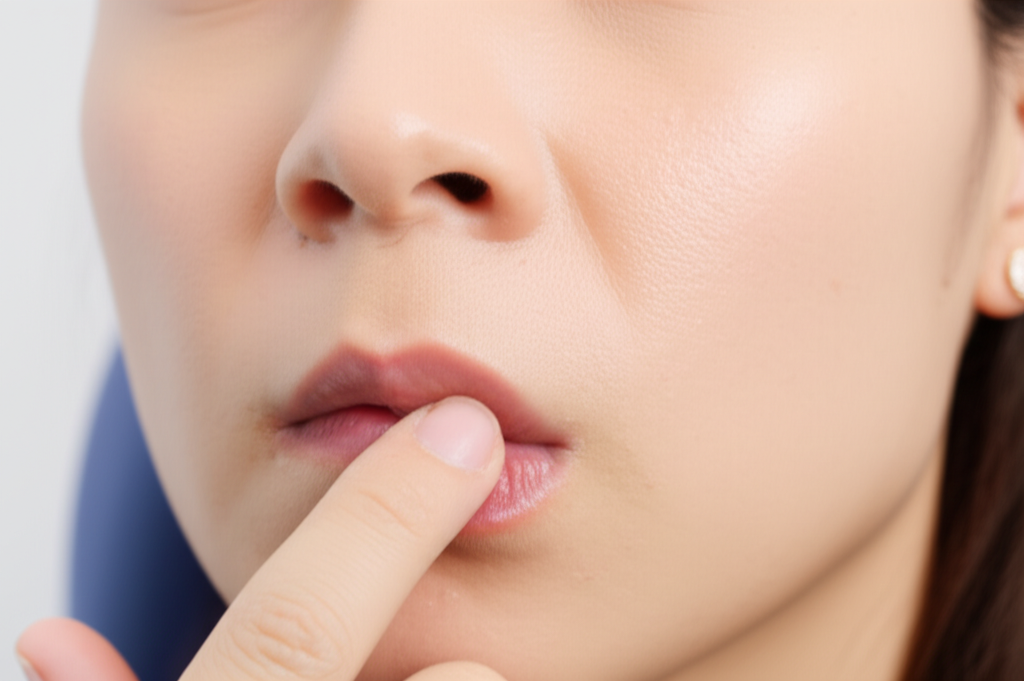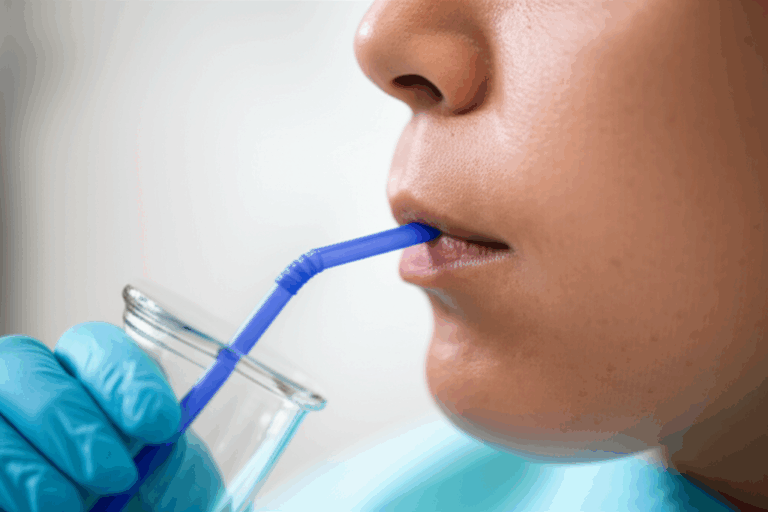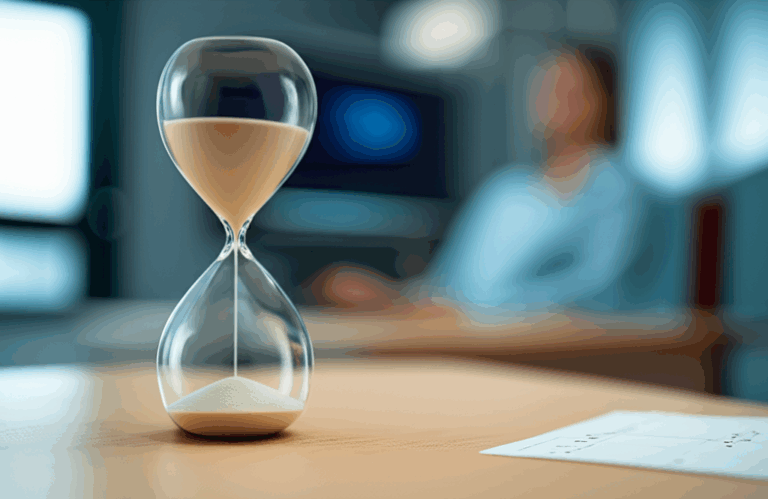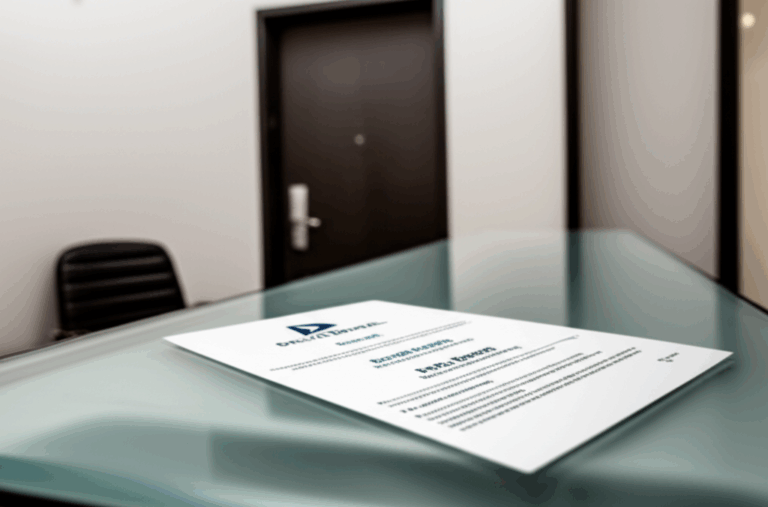
How Long Does Your Lip Stay Numb After a Dentist Appointment? My Experience and Guide to Dental Numbness
Table of Contents
- What Is Local Anesthesia and How Does It Work?
- Common Types of Dental Numb Stuff
- Why Dentists Add Things Like Epinephrine
- How Long Numbness Lasts for Different Visits
- Things That Change How Long You Stay Numb
- What Nerves Feel Like Waking Up
- Why Different Areas (Lip, Tongue, Cheek) Go Back to Normal at Different Times
- Short-Term Problems
- Eating and Drinking the Safe Way
- Stopping Accidental Hurts
- More Tips and Simple Tricks
- Easy Fixes I Tried
- Medicine That Reverses Numbness: Does It Work?
- When Numbness Lasts Too Long
- Symptoms That Are Bad News
- When to Call Your Dentist
Introduction: My Own Numb Lip Moments
If you’re like me, you probably don’t like that odd, tingly feeling after you get done at the dentist. I’ve lost count of how many times I caught myself messing with my droopy lip, hoping I’d be able to drink without making a mess or eat something real soon. The first time I had it, I was shocked by how long my lip stayed numb. I even started worrying after a few hours—was this okay? Would the feeling ever come back? Over time, after fillings, root canals, and even having a wisdom tooth out, I figured out what really happens when your mouth is numb and some easy ways to handle it until you’re back to normal.
Let me walk you through what I wish I’d known the first time it happened.
Understanding Dental Numbness: The Basics
What Is Local Anesthesia and How Does It Work?
The main reason your dentist numbs your mouth is so you won’t feel any pain. The numbing stuff (like lidocaine or articaine) stops nerves from sending “ouch” signals to your brain. Imagine you cut the power to a phone line—the nerves can’t tell your brain, “Hey, this hurts!” It sounds wild, but it’s safe and has been around for years.
Common Types of Dental Numb Stuff
After all my trips to the dentist (and asking a lot of questions), I found out not all dental numbing is the same. Dentists pick from a few main ones, each lasting a different amount of time:
- Lidocaine (Xylocaine): This is the usual one. You stay numb for about 2–5 hours, especially if something like epinephrine is added.
- Articaine (Septocaine): This one works fast and can be pretty strong. It usually lasts 2–5 hours too.
- Mepivacaine (Carbocaine): If you want the numb feeling gone sooner, this one lasts about 1–2.5 hours.
- Bupivacaine (Marcaine): This is the long-lasting one—4–9 hours. They use it more for bigger jobs, like pulling teeth.
Whenever I get something done, I ask my dentist what numbing medicine they’ll use. Then I know about how long I’ll be weirdly droopy.
Why Dentists Add Things Like Epinephrine
Epinephrine (that’s just adrenaline) is sometimes mixed in with numbing medicine. What does it do? It makes blood vessels squeeze tight nearby, so the numbing stuff stays in one spot longer and your body doesn’t clear it away too fast. Basically, your lip stays numb more, there’s less bleeding, and your dentist has more time to finish their work.
The Typical Timeline: When Will the Numbness Wear Off?
How Long Numbness Lasts for Different Visits
Here’s how it’s gone for me:
- Fillings and cleanings: The numb feeling goes away in about 1–3 hours. For these, dentists usually put the numb stuff close to the tooth, not deep inside.
- Crowns and simple tooth pulls: Still 1–3 hours most of the time, especially for the top teeth.
- Root canals, hard tooth pulls (like wisdom teeth), and big numbing shots: I’ve had my whole cheek, lip, and even half my tongue feel like rubber for up to 3–8 hours. This is because these need a big nerve block. If your lower lip is out cold, it was probably an inferior alveolar nerve block.
I also found out tissue numbness (your lip, cheek, or tongue) can last way longer than the “inside the tooth” numbness.
Things That Change How Long You Stay Numb
Sometimes I stayed numb longer (or not as long) as usual. Here’s what I learned:
Some days, especially if I skipped breakfast or was really nervous, the numbness felt like it would never end—even when it was right on track.
What to Expect as Numbness Fades
What Nerves Feel Like Waking Up
The weirdest part for me? When the feeling begins to return. Usually, it starts like pins and needles—just like when your foot falls asleep. Sometimes my lip or cheek itched or twitched a bit. Totally normal—it just means your nerves are starting to work again.
Why Different Areas (Lip, Tongue, Cheek) Go Back to Normal at Different Times
I always wondered why my tongue could stay numb after my lip started to wake up. It really depends on which nerves were numbed and how deep the dentist went. Big nerve blocks cover more area, so your lip, cheek, and tongue might all be dozing. Different nerves snap out of it at different times, especially in the bottom jaw.
Short-Term Problems
When the numbness left part of my mouth first, it took a while to get used to:
- Talking odd. It’s hard to say words right when your mouth isn’t working!
- Chewing slow. I bit my lip once and didn’t even know until the feeling came back—ouch.
- Drooling a bit. Drinking from a straw was a lifesaver.
Dealing With a Numb Lip: My Simple Tips
Here’s what I wish someone had told me sooner.
Eating and Drinking the Safe Way
Wait if you can. Being hungry after the dentist is tough, but I try not to eat until my mouth is normal again. If I really need to eat:
- I pick things that are soft and not too hot. Stuff like yogurt, pudding, or scrambled eggs.
- No hot foods or drinks! I burned my mouth once and didn’t even know until later.
- I chew on the side that isn’t numb.
- Straws help, but they can also make a mess if you’re not careful.
Stopping Accidental Hurts
The urge to poke or bite your numb lip is real! Don’t do it. You’ll just end up with a sore, swollen lip the next day. If you’ve got kids, watch them closely—they can hurt themselves and not notice.
More Tips and Simple Tricks
- When I brush or floss, I go easy around numb spots. You can scrape your gums and not even know until later.
- If I need to talk or do something important, I try to wait or let folks know my mouth might sound strange.
- Driving is usually safe, but if I feel dizzy or out of it, I wait or have someone drive me.
Want to see what new dental tech is out there? You can check out the digital dental lab for info on how they’re using cool new gear to help patients.
Can You Make the Numbness Go Away Faster?
I’ve tried lots of little tricks—sometimes just because I want the feeling back sooner! Here’s what really does (and doesn’t) make a difference:
Easy Fixes I Tried
- Gentle rubbing: Massaging the area can help get more blood going, but ask your dentist first—especially after a tooth was pulled.
- Warm washcloth: A warm (not hot!) cloth can help. Be careful not to burn yourself since you can’t feel if it’s too hot.
- Walking around: Moving can get your blood moving and maybe make the numbness leave a little quicker.
- Just waiting: Most of the time, it’s just about waiting.
Medicine That Reverses Numbness: Does It Work?
Once my dentist offered me something called OraVerse. It’s a shot that helps numbness wear off quicker by opening up blood vessels. If you want the feeling back fast, you might ask your dentist about it. It’s not always used, but it’s good to know what’s out there.
When You Should Worry: Numbness That’s Not Going Away
Most numbness from dental work goes away like normal. But I always watch out for these warning signs:
When Numbness Lasts Too Long
- After simple dental work: If you’re still numb more than 6–8 hours, that’s not normal.
- After big dental surgery (like wisdom teeth out): Sometimes, numbness can last up to 12 hours—but not much longer than that.
- Longer than 24 hours: Time to call the dentist right then.
Symptoms That Are Bad News
If I get:
- Bad pain, big swelling, or my face looks funny
- Numbness with burning, a really weird tingle, or feels totally “dead”
- The numb feeling keeps moving somewhere new or keeps getting worse
All of those mean I should get help right away. Dentists say these can mean a nerve got hurt or something unusual is going on. So it’s best to get checked fast.
When to Call Your Dentist
I call my [dentist] if:
- I can’t feel part of my mouth 12 hours later
- I have weird symptoms or can’t find an answer after searching
- The numbness is keeping me from eating, drinking, or talking safely
Dentists would rather hear from you than let something get worse—and I’ve never been sorry about calling, even if it turned out fine.
Conclusion: What I Learned About Waiting (and My Lip)
After all my dental visits, I see that numbness is half science, half guesswork, and a lot about waiting. Every person is different. Every trip to the dentist changes the timing. What’s always true is that patience is important—and knowing when to call for help. Most numbness goes away soon, is easy to manage, and you don’t need to worry about it. But knowing more helps you feel better.
So next time you’re feeling like your mouth is stuck, remember what I learned: do what the dentist says, don’t stress out, and plan to eat something soft and simple for your next meal. Before you know it, you’ll be fine.
If you want to learn more about how new dental labs can help make your next visit easier, check out my thoughts on a china dental lab or about my experience with a [dental ceramics lab] to see how high-tech labs make things more comfortable. Always take care of your teeth, and don’t be shy about asking the pros questions.
FAQs: Quick Answers to Top Questions
Is it normal for my lip to be numb for 4, 6, or 8 hours after a filling?
Yes, it’s usually normal based on what they used, what you had done, and how your body handles medicine. Most dental numbness lasts 1 to 5 hours, but if you got a nerve block for the lower jaw, it can last up to 8 hours.
Why is my bottom lip more numb than my upper lip after dental work?
Bottom teeth need a bigger shot called an inferior alveolar nerve block. It numbs your lower lip, half your tongue, and your cheek. Top teeth don’t need such a big area numbed.
Can dental numbing last for days? Should I worry?
It almost never lasts longer than 12–24 hours. If you’re still numb after a day, call your dentist. Numbness lasting that long is rare and usually means something is wrong.
What happens if I accidentally bite my numb lip?
Don’t freak out. It might be puffy or sore once the feeling comes back. Rinse with salt water, don’t mess with it, and let it heal. If it gets worse or looks infected, call your dentist.
How do I know what kind of numbing medicine my dentist used?
Just ask! Dentists are used to this and will tell you what they used and why.
Checked for real-world accuracy by Dr. Joe Dental, DDS. All advice comes from what I went through myself and what dentists say is best now.








